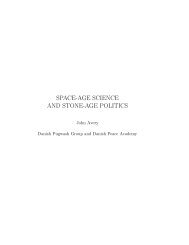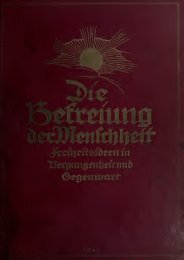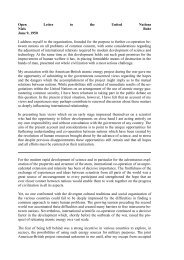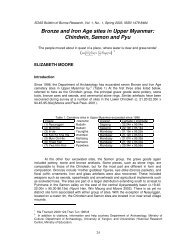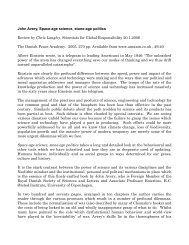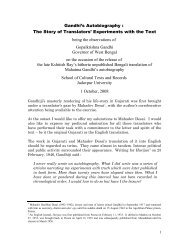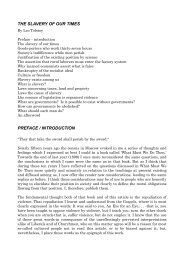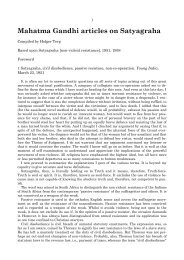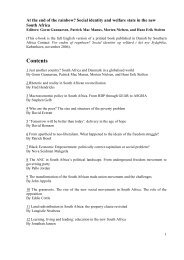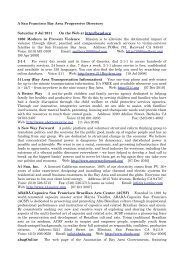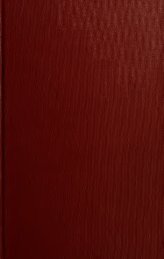Untitled
Untitled
Untitled
Create successful ePaper yourself
Turn your PDF publications into a flip-book with our unique Google optimized e-Paper software.
20 U. S. AND EXPANSION OF LAW BETWEEN NATIONS<br />
As the European nations began to emerge out of the grad-<br />
ually breaking up and disappearing feudal system, various plans<br />
for substituting in some way international justice for international<br />
war in deciding the disputes between nations, began to be<br />
made. Thus Henri Quatre and the Due de Sully, fimeric Cruce,<br />
William Penn, the Abbe Castel de Saint. Pierre, and Emmanuel<br />
Kant, among others, advanced various schemes to do away,<br />
more or less, with war. With some slight exceptions, however,<br />
it was not until after the conclusion of the treaty of 1783 that<br />
any continuous movement to avoid war by some means or other<br />
of judicial settlement began to be put in practice. In the Anglo-<br />
American treaty of November, 1794, known as Jay's Treaty,<br />
provision was made to refer three then existing subjects of<br />
disagreement between the contracting powers to mixed commissions<br />
for final decision and settlement.<br />
Article five of Jay's Treaty provided for deciding what<br />
river was meant by the "name of the river Saint Croix" in the<br />
treaty of peace of 1783 between America and Britain; article<br />
six arranged for the submission to arbitration of the claims of<br />
British subjects against American citizens which had arisen in<br />
the past owing to various causes; and article seven provided<br />
for the settlement of the claims of American merchants which<br />
had arisen against the British Government owing to the acts of<br />
British war vessels. Eventually in the course of ten years or<br />
so, all these questions were settled in the manner provided for<br />
in Jay's Treaty. Then in concluding the war of 1812, again<br />
of Ghent to submit<br />
America and England agreed by the Treaty<br />
various boundary difficulties to international joint commissions.<br />
And after that many times again until the advent of the Civil<br />
War, the United States Government led in having its difficulties<br />
with other governments submitted to some form of international<br />
arbitration.<br />
Then as the Civil War was approaching its close,<br />
it was<br />
a member of the Philadelphia Bar, Thomas Balch, who proposed<br />
in November, 1864, to President Lincoln and again in a public<br />
letter printed in the New York Tribune, May 13th, 1865, that the<br />
then pending American reclamations against Great Britain



